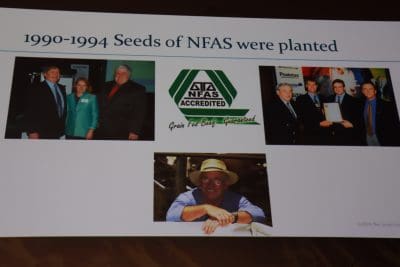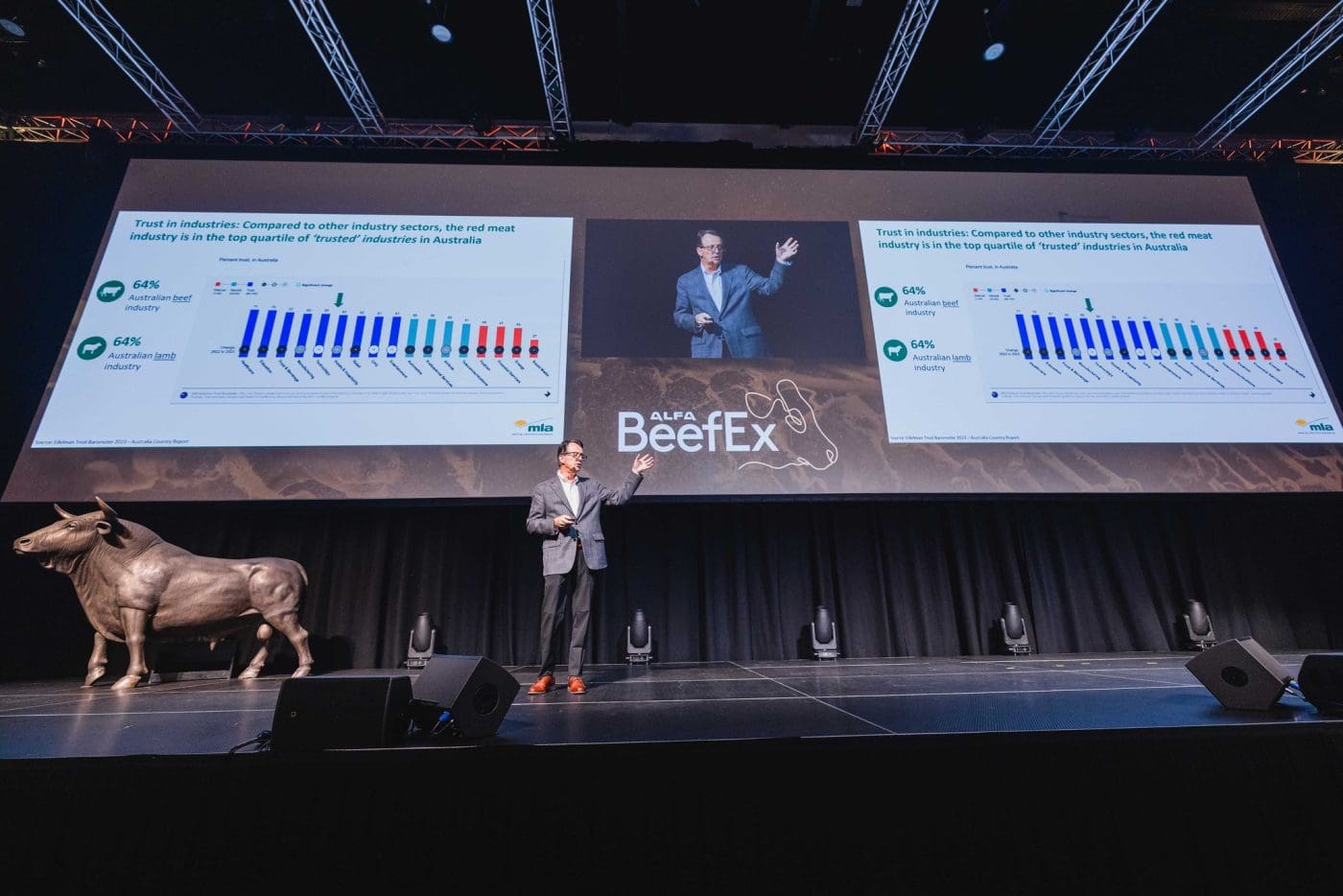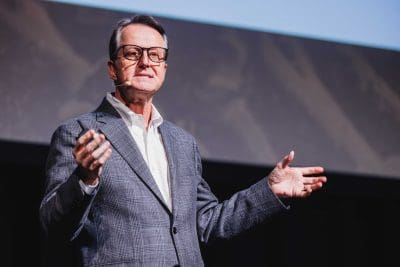AN expert in consumer trust has praised the Australian feedlot industry for the “truly remarkable leadership” it demonstrated in implementing the National Feedlot Accreditation Scheme (NFAS) 30 years ago.
Addressing the BeefEx 2024 conference in Brisbane this week, Charlie Arnot, CEO of the US-based Centre for Food Integrity, said the NFAS “was way ahead of its time anywhere in the world”.
 Mr Arnot said “he tipped his hat” to people such as Kev Roberts, Bob Coombs, Rod Hadwen and Jack Ware who had the foresight to begin to develop the NFAS scheme over four years from 1990 to 1994.
Mr Arnot said “he tipped his hat” to people such as Kev Roberts, Bob Coombs, Rod Hadwen and Jack Ware who had the foresight to begin to develop the NFAS scheme over four years from 1990 to 1994.
“And I can’t imagine the number of ‘no, because’, ‘yes, but’, ‘are you out of your mind, how could you possibly do this’, ‘you’re wrong’, ‘we don’t need it’ – all of those kinds of conversations that they had to overcome with perseverance and diligence and ongoing energy.”
“The ability to see what was coming and to put a scheme in place to give you autonomy and the ability to protect and maintain your social license really required some foresight that many organisations didn’t have and many still don’t have today.”
The true stroke of genius was making the scheme mandatory for market access, he said.
“The foundation you created creates a phenomenal opportunity, because you are already addressing food safety concerns, environmental concerns, livestock concerns, animal welfare concerns, food integrity concerns.
“There are a lot of voluntary programs around the world for quality management, for animal welfare, for environment etc … but making this mandatory to have market access was a game changer.
“Because now the entire sector has to be able to comply with NFAS. If you want to sell product and you want to get your cattle to market you have to participate, and that gives your buyers the assurance that no matter what level of grainfed standard product they want to buy, they don’t have worry about food safety, about animal welfare, about environmental compliance, because it is taken care of, because everyone who participates had to be part of the NFAS scheme.
“And from my perspective as an outsider coming in and looking at the industry, I think the best part of what happened wasn’t the individual programs which are powerful but the absolute best benefit was in creating a culture of quality management within the feedlot sector within Australia.
“Which means you know have a culture that anticipates what is coming, that is willing to address these issues, you have a culture that is willing to say we need to continue to evolve and change.”
“And culture eats strategy for breakfast every single time, according to Peter Drucker and many others.”
Mr Arnot quoted public sentiment research showing that the NFAS has translated into high levels of public trust in the Australian lot feeding industry.
“64 percent of metro Aussies believe you are going to do what is right,” he said.
“My guess is your PM would probably kill for those kind of approval numbers.”
“It is a phenomenal tribute to the work that has been done and the progress you have made and are continuing to build.”
Focus on shared-values with consumers
Mr Arnot also delved into the shifting global landscape where consumer expectations are increasingly influenced by ethical considerations.
He warned that Australia’s livestock sector must continue to focus on anticipating these changes to maintain its competitive edge in the global market.
A significant challenge he identified is the rising influence of misinformation and the changing nature of communication in the digital age.
He argued the industry should focus its messaging on the values it shares with consumers.
“The challenge we have is that activists are making an emotional argument, they are making a values-based claim that their values are aligned with the public, but these greedy people (the livestock industry) only care about money and therefore you should align with our values.
“So the key to that is to co-opt the values-based platform.
“They say ‘we care more about the environment, we care more about animals, we care more about this’.
“Do not to focus on them, but focus on audiences that are meaningful to you and say we respect what they’re trying to do, but let me share with you how deeply we care about animals, how deeply we are committed to protecting the environment.
“We had a peer reviewed and published model for building trust, and what it shows is that connecting on values is three to five times more important than sharing data or science.
“So making that values-based connection and the stories that you have, the multi-generational families, the work that you do is compelling, those are compelling because they are authentic.
“You can’t ignore the gong-bangers, you have to pay some attention, but that is not your audience. You simply want to make sure that they don’t have an adverse impact by leveraging the value that you have.”


